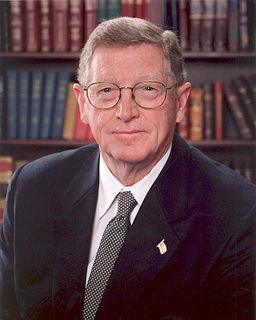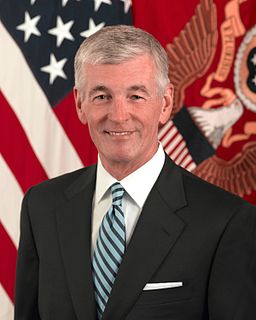A Quote by Conrad Burns
Vocational education programs have made a real difference in the lives of countless young people nationwide; they build self-confidence and leadership skills by allowing students to utilize their unique gifts and talents.
Related Quotes
At the moment I would like to emphasize the need for vocational training, for non-formal education in Burma to help all those young people who have suffered from a bad education. They have to be trained to earn their living. They have to have enough education vocational training to be able to set up respectable lives for themselves.
In my mind, the purpose of education is to enable human beings to develop to their full potential, intellectually and spiritually. That means that students have to be empowered to pursue self-knowledge and the skills that will help them be of service to their fellow human beings. Education should encourage people to develop their curiosity about life; above all, it should not trivialize either the students or their lives.
In addition to all of the ratios and goals and parameters and bottom lines, it is fundamental that leaders endorse a concept of persons. This begins with an understanding of the diversity of people's gifts and talents and skills. Recognizing diversity gives us the chance to provide meaning, fulfillment and purpose, which are not to be relegated solely to private life any more than such things as love, beauty and joy. The art of leadership lies in polishing and liberating and enabling those gifts.
I am often asked if leaders are born or made. The answer, of course, is both. Some characteristics, like IQ and energy, seem to come with the package. On the other hand, you learn some leadership skills, like self-confidence, at your mother's knee, and at school, in academics and sports. And you learn others at work-trying something, getting it wrong and learning from it, or getting it right and gaining the self-confidence to do it again, only better.
The fact is that given the challenges we face, education doesn't need to be reformed -- it needs to be transformed. The key to this transformation is not to standardize education, but to personalize it, to build achievement on discovering the individual talents of each child, to put students in an environment where they want to learn and where they can naturally discover their true passions.


































